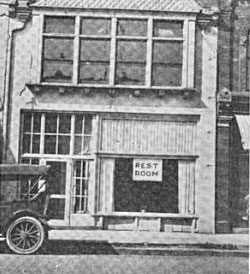In the Archives: Papered-Over Money Issues
Editor’s note: As municipalities in the state of Michigan start to look ahead to their next budget year, we will likely hear often about the difficult economic times in which we live – and the importance of squeezing every last dime out of the budget. It’s fair to guess, however, that wrangling over Michigan municipal budgets will not include a discussion of who should pay for toilet paper. There was a time, however, when the topic of toilet paper was fair game.
It is wise to choose one’s battles. For one hard-headed 1920 Ypsilanti alderman, the hill he chose to die on was a hill of toilet paper.
In that time, the city was halfway between old-timey days and the modern age. Fewer than a third of its 7,400 residents had telephones. The Ypsi phone directory was nine pages long. Due to a limited supply of electricity, many city factories deferred working hours to the night time. And an ongoing “sanitary sewer” project, viewed as a progressive upgrade from noisome urban septic tanks and privies, emptied directly into the Huron River.
Issues before the city council reflected this time of transition. At its Oct. 4, 1920 meeting, the council weighed the street commissioner’s bill for oats for his horse. The bill had been carried over from a previous council meeting when aldermen had struggled but failed to resolve the issue of a horse’s feed.
One alderman was fed up. “Alderman Worden said he had bought oats about the same time for 85 cents a bushel, while the charge for oats in this bill was $1.35,” reported the Oct. 5, 1920 Daily Ypsilanti-Press.
“Profound silence on the part of the other aldermen.
“Finally it was moved that the bill be paid, and the vote was 9 to 1 in favor.” [Full Story]




